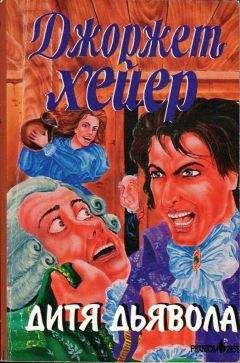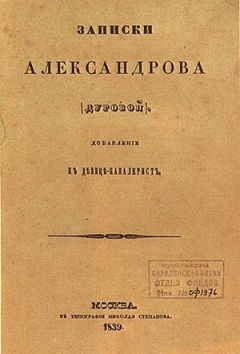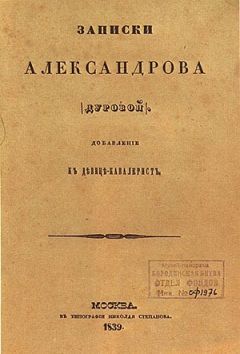Peter Carey - Oscar and Lucinda
78 Ceremony
^*t}-|>SJTï;'i;>5-Jft! fSJlig'"'.kj..&3iqifcï'M' f'C' ',-^ni'S,
•lUffivA.-••;•..•,-.:•»…. *:;.; — :?"<.£,», iv;-s M,#•,'.: V^'>^-:<4J.>^: U,X
On the Sunday following the Balmain Regatta, Arthur Phelps walked two miles to Whitfield's Farm. He brought his youngest boy with him. The pair of them were in their best, the little fellow in a sailor suit and Arthur in a three-piece tweed. They had carried their boots with them to save the leather and had stopped up at Birchgrove House to lace up, accept a draught of water and a fresh-pulled carrot from the garden.
Arthur had washed his beard and combed it. It was snowy white and soft like the hair of a newwashed dog. Lucinda almost did not recognize him. He looked so grand, like Mr Henry Parkes. He smelt of soap and mothballs.
She invited him in, but he would not come in. She held the door open and noticed mosquitoes entering whilst her guest wiped his boots on the treadmill of the front-door mat. She had had this
"respect" before. It always made her most uneasy.
Arthur had a speech to say. He stood up straight and tucked his "bellows" in. His boy was being bitten by mosquitoes, but Arthur was making his speech and would not let go the lad's hand. When she heard his speech, Luanda felt her ears burst into hot flowers. Arthur not only knew Oscar's name, he was linking it with hers. He was making an assumption. This was the first thing to shock her. The second was that Arthur was inviting them both to visit the works. They were invited together, as a couple.
Of all the ways this shocked her, this is how it shocked her the most: that this man, this glass blower who would presume to order her not to attend her own works without prior notice would now, the minute he assumed her to be connected with a man — and do not mind that the connection was thought to be scandalous — would walk two miles, on the sabbath, to make sure the lord and master should inspect his new territory.
And yet she accepted. How weak she was! Because she was touched that he should walk two miles, and ashamed of the great wall of anger
307
Oscar and Lucinda
which threatened to swamp her. She did not even permit hersalf a sarcasm. She accepted. She said: "Very well," (you fool, you fool) and closed the door while Arthur was still saying good night. She would send a message, later, and find a prior engagement, but she put it off, and put it off, and the following Saturday saw her walking down the hill of Druitt Street towards the works. It was obvious to Oscar who walked, stick-thin and tangle-toed, beside his compact and tightly ordered friend, that she was not pleased. He thought: She is over-laced. But she was not laced at all, merely angry. The "lacing" was in her face, which had compressed lips, diminished mouth, which could not be hidden by her wide-brimmed hat.
The hat was too wide for someone of her height. It threw her out of proportion and made her smaller still. She knew this. Twice she stopped, in a public street, to fiddle with it, but all she succeeded in doing was making herself untidy.
Oscar did not understand the emotional weather. He was just released from Mr d'Abbs's office and was not keen to donate his Saturday afternoon, his first leisure of the week, to an inspection of such an uglylooking enterprise. He had become accustomed to picnics at Manly and Watson's Bay. Here, the air was fetid, although from what manufacture was not clear. A sawmill screamed. They crossed the shit-littered cobblestones of Druitt and entered a yard. In the yard were open-sided sheds. They stepped across puddles. There were crates of bottles in piles (one blue, one brown) of broken glass.
Australia was a loathsome place. He wished he had never come. Now he had drawn poor Wardley-Fish to follow him, or so he had been informed by a stale, fat-spotted letter recently released from diocesan custody. Wardley-Fish's ship was on the sea and could not be prevented. What would Fish say to find himself confronted with all this?
A suited man with ragged cuffs ran across the yard and disappeared into the round brick building with the rusty tin roof. Lucinda pointed towards him, at him, his cuffs, the door he entered by. She pointed with her Japanese umbrella-a sharp, short-tempered sort of polk. Oscar took all this bad temper on himself. He felt the umbrella pierce his rib cage. He knew he was not wanted here. Well, he did not wish to be here! He looked at Lucinda's bad-tempered face and did not like her. He smiled and raised his eyebrows and it was with this peculiar mask, no longer shaded by his tall hat, that he entered the works.
Nothing was as he had expected. Where outside it had been untidy and damp, inside it was very neat and pleasantly dry, like the palm of a pastrycook's hand. There were no windows in the walls; they were high up, under the roof. There were six furnaces in the middle of the room, 308
Pot and Kettle
and another five along the side. There was a long bed of trolleys and machines at present not in use. He assumed this was for making window glass, and he was right.
But what he expected least was to find the works garlanded with flowers: cornflowers, lachenalias, poppies, white and yellow daisies, freesias, flag flowers, daffodils, jonquils. They were tied in bunches to the big piers that held up the roof. They stood in great green-glass jars around the wall. They were embedded in a fishing net that hung between the furnaces and the doorway and beneath this banner of flowers the men all stood, their strong bow-legged forms pressing hard against the confinement of their suits. As Oscar and Lucinda entered, they burst into song.
"Oh, Lord, who filled our souls with love unbounded." Lucinda looked straight ahead. She was moved, of course she was moved. The fools had worked so hard to please her. But she was angry, too, and the tears that ran down her cheek were caused by quite different forces than those which were producing the identical phenomenon in her lodger. Both lots of tears were salt, I am sure, and were probably within the normal range of salinity, i.e., between one per cent and two per cent salt, but this is merely to show you the limits of chemistry, for while Luanda's tears were produced by diametrically opposed emotions, Oscar's were all in one direction and had their source in such grand territories as joy, wonder, humility, and love for these suit-trussed workers who had publicly enacted love for him, a stranger and an outcast.
79
Pot and Kettle
They were strangers to each other, two vessels on the one stove, the kettle whistling out great clouds of joy, the stew pot quietly burning, and each blind to the condition of the other. There was a glass-blowing demonstration. Lucinda imagined Oscar
309
Oscar and Lucinda
to be bored and polite. He drank a pint of beer with the men; they offered her none. She put a smile on her face and despised them all as fools. She was belligerently unchristian. Mr Hopkins's tongue was quickly swollen with drink. It was bloated, as fat as an ox's inside his fine, small-toothed mouth. They had him sing a hymn for them. He had no voice. And whilst she knew her audience did not mind, she minded.
She was frump and dullard. He was as loose and floppy as a puppet. He watched them demonstrate how a tankard is made, 'i six times. No one seemed to worry about the cost of keeping the furnaces going. She could not mention it and still keep herself controlled. They spilt their ale on the brick floor and put their arm about him and called him (Michael Casey did)
"Father."
She was in the centre of a great cold space. She smiled until her face hurt. She enquired of squash-eared Billy about his wife and children and noted he could not tell her the age of his children. She did not care that he was poor. She smiled at him. He was drunk. He tapped her on the shoulder as he spoke to her. She left him as he tried to calculate the age of his middle child. Mr Hopkins was out in the yard. He had taken it upon himself to inspect her sand and coal. He was with Arthur Phelps.
She could howl. Could run round and round the yard like a dog hurt by a wagon wheel. And the sun was now so bright.
She thought herself a child. "I think, Mr Hopkins," she said, "that we have another appointment." He saw then, or so she thought. It was to his credit. He shook hands with Arthur and refused the invitation to come back inside to say farewell to "the boys." Arthur hung on his one hand with two of his.
"It is a great pleasure," he said, still holding the fine-boned hand with a clasp that felt, to Oscar, to be made from padded calico gloves, "it is a great pleasure, sir, to see our missus take up with such a gentleman as you, sir. And any time you wish to know anything at all, sir, when we have the window-making in full tilt, you just come along and we will be pleased to explain it to you." Oscar turned, his hand still held in the straitjackef of the blower's hand, and saw Lucinda, who had been by his side when this speech
Tin
Pot and Kettle
began, walking away. Her shoulders were round. Her neck was forward. He did not know what had gone wrong. Had he not been manly amongst her men?
"Thank you, Arthur, I will."
He heard cheering. He turned and saw the men had spilled out of the works and had lined up against the wall with their tankards. They were cheering their employer who was walking past, her head bowed. When the cheering began she put up her umbrella to shield her face from them.
"Goodbye, Arthur."
"Goodbye, sir, and it is a privilege, sir and I myself was never married and that is a fact, sir, and it is not that I am not a Christian. My mother was a Baptist and my old dad a Unitarian, and we attend a chapel now and then but I will tell you this, sir, for it is a comfort to me and may be one to you…"
"Thank you, Arthur."
"An old chap, a Mr Hollis, a what-you-call-them Christian Socialist, informed me that the institution of marriage-I'll walk with you, sirdon't worry about the lads. Give them a wave, sir, that's right. This old fellow, oh, what a beard he had, silver-white and down to his belt. He could tuck it in his trousers, and sometimes did when he was shickered. He told me that the institution was nothing our Lord said, but was introduced at a later date, and by one of the popes no doubt, and it was all to do with property, and not our Lord Jesus, but was related to the Church taking over the recording of things. Well, my memory is a leaky vessel. Give them a wave, sir, they're pleased to have you. They are happy for the missus, that she has a man at last. It has been hard for her. There are some of us that will regard you as a real relief, sir. Well, goodbye, and it has been a privilege."
Oscar hurried after the black, umbrella-humped figure. He waved back. And he made such a comic figure, his hat pushed back on his head, as he leaped across a puddle, waved an umbrella, jumped to avoid some oxen droppings, that the men all laughed, but not maliciously. They walked back to their barrel smiling and shaking their heads. Their new master was an odd bird, but not a knave.
What appointment? Oscar knew of no appointment. An appointment for her, perhaps, but not for him. He was disappointed for he wished to do nothing so much as talk to her. He felt he had opened a door into her life. He would like to sit somewhere, a place with marble tables. If it had been London they would go to the
Oscar and Lucinda
Café Lux in Régent Street. A glass of port wine for the lady. Or merely China tea, and then they could talk about this glass business of hers.
It had never occurred to him that a process of manufacture could be beautiful. Had you, an hour before, asked him to tell you what he would call beautiful he would have drawn on the natural world, and named the species along the lanes of Devon, or brought up for you, plunging his hands into the rock pools of memory, the anemone his father had drawn and named, these fine soulless creatures which had, just the same, been made by God. He would have shown you the Strattons' harvest stocks (and forgotten they had scratched his arms and made them itch all night) or the rolling, dangerous sea seen through a familiar window with a two-foot-thick sill. He would never have led you into a building with a rusting, corrugated roof, or taken you between lanes made from bottle crates, or littered with glittering shards. In these places you expected foulness, stink, refuse, and not, certainly not, wonder.
But it was wonder that he had found, and he had felt it in his water, before he saw anything to wonder at, that this dry, swept place-he knew this the minute he was inside the door-contained something exceptional.
They led him to a glory-hole, had him look in, into the protean world where you could not distinguish between the white of pure heat, the white of the crucible, and the white of the molten glass which they named "metal." When Arthur had said "metal," Oscar had understood "tin" or
"silver" or "gold." And when the gatherer drew out the substance it could have been all of these things. The red-hot orb at the end of the long rod which he watched, passing from man to man, from glory-hole to glory-hole, acquiring more metal, being blown a little, swung, handed on, until it came to that largest, most slovenly of all of them. And then he who dubbed himself (privately, whispered it in Oscar's ear) to be none other than the famous knight Sir Piss-andWind, took the long rod and was, at once, drum major, bagpipe master, trumpeter, transmuter, as he transformed the metal into a tankard. He sat himself at last on his wooden throne and rolled the long rod back and forth across its arms whilst he smoothed a base with wet pear wood which hissed and steamed in clouds around his tea-and-alestained whiskers. He took a snake of red elastic glass from the third gatherer and, lifting it high-where it looked as angry as a snake in an eagle's claws-made it, with a flourish, into a question mark, and thence, a handle. It was all so fine, so precise, and it was a wonder
312
Pot and Kettle
that this miracle was wrought by a whiskered Falstaff with a fat belly and a grubby singlet showing through the layers of wet, sour hessian.
"I am a human bellows, sir," Arthur claimed, waving his hand for someone to come and take his creation from him. "That is what I have made of myself."
But it was not this that thrilled Oscar about glass, that a man had made his body to comply with the needs of manufacturing, but that a man so obviously gross and imperfect could produce something so hne.
Glass. Binding white. Glowing red. Elastic. Protean. Liquid. Vessel for light. He hurried after the proprietor. He was a tangle-legged usurper, a shiny-suited thief. He was a butterfly collector, an art buyer, walking fast after the thing that had produced such wonder. He would be a part of this, any way at all.
She fled him, walking quickly, like an honest citizen who feels a pickpocket on his tail. She headed up York Street and then turned in towards the crowds at the markets. He pushed his way through narrow alleys between the stalls. It was a sunny spring day, but in here there were lanterns hung between the sausages, and he followed her large black hat as she turned, bumping into people between bolts of calico, piles of moleskins, racks of blue metal shovels lined up like weapons in an armoury, and out into the blinding light of George Street. She walked at such a pace that even Oscar, with his legs a good foot longer, his stride another two feet in advantage, had trouble keeping her in sight.



